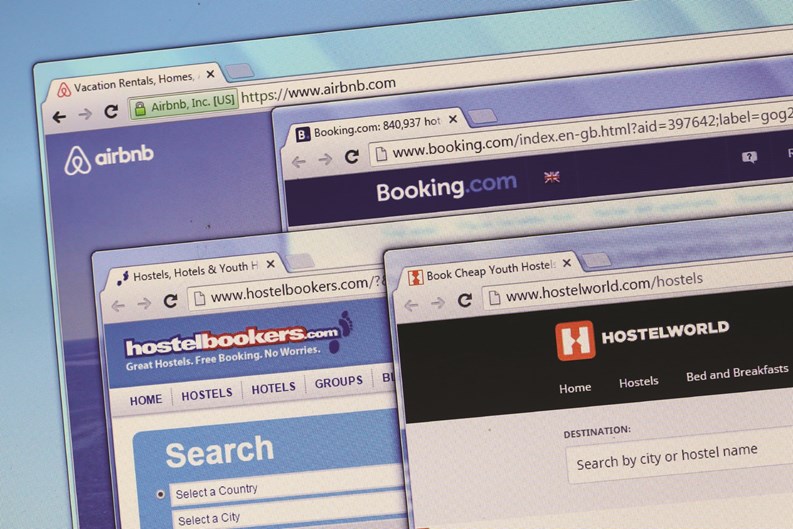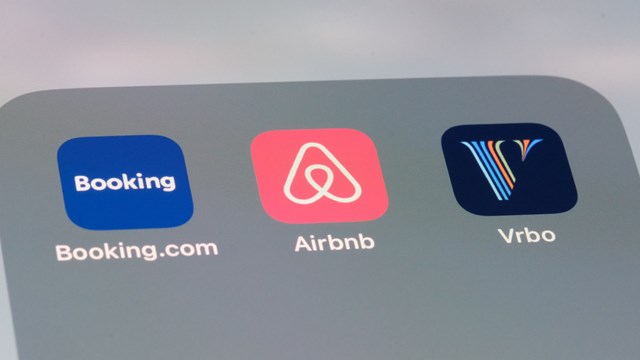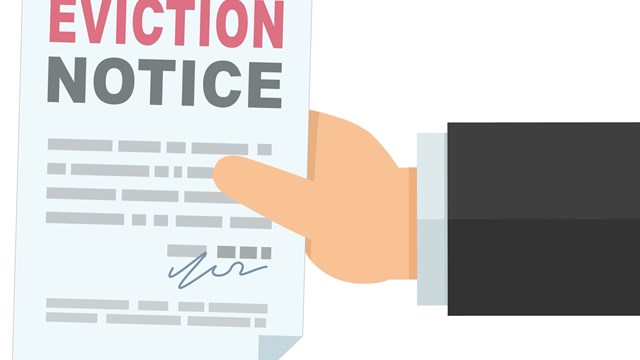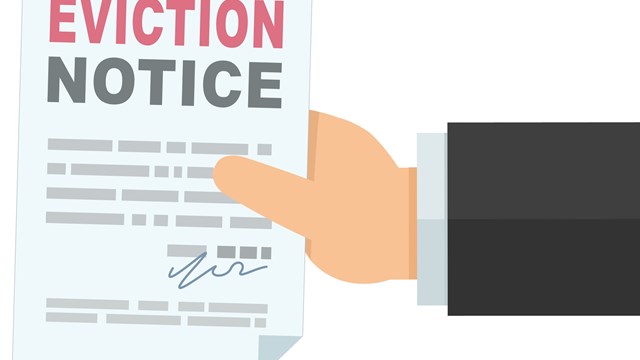In January, Airbnb listed New York City as the third-most travelled to city for business trips on its new “Airbnb for Business” platform. The announcement comes a month after the company released data showing that nearly 60 percent of Airbnb users in New York City are renting out their entire apartments while they are not at home—which is illegal under New York State law.
This comes about four months after the City of New York hired Christian Klossner as the executive director of the Mayor’s Office of Special Enforcement (MOSE). MOSE leads an interagency task force going after illegal hotels New York City.
As a former narcotics prosecutor, Klossner told reporters back in October that he will be using similar strategies to go after illegal hotels in the city. He noted that the process would go from a complaint-driven system to one that actively sought out illegal hotels.
“MOSE is in a transitional phase during which we are expanding upon previous successes and developing a strategic approach to more pro-active enforcement. This will mean expanding staff and skill sets, identifying the most egregious offenders, and deploying a wider array of tactics calibrated to specific trends,” says Klossner in a statement to the City Council.
This represents a larger trend by city officials taking illegal short-term rentals more seriously. MOSE has since received a $10 million budget boost, hired new staffers, started a public awareness campaign, is using state-of-the-art data to find illegal operators. In addition, the City Council has budgeted money for 17 new inspectors, more than doubling the current number. The City Council is also looking at proposals that would increase the fines violators, as well as building owners and boards, would receive.
Sublet Dramas
“The exposure is there,” says Alexander Kanen, a managing and real estate partner at Manhattan-based Kanen Law Firm. “There are two considerations at play: state law and building consideration. Many buildings have rules specifically prohibiting certain leases and subletting.”
The concerning part of all this is that when the fines are levied against users who are caught illegally renting their apartments out the landlords and co-op boards of the buildings they are in can also be fined.
The city’s crackdown is meant to go after situations like the apartment building that turned into a $31-a-night hotel in Brooklyn back in February. They found that a loft space had been converted into an eight-room hotel. Guests would gain access by punching a code into a keypad at the door, shared one of two bathrooms and had access to a kitchen and free WiFi, according to the listing on Airbnb.
While Airbnb found all of the travelers a place to stay, according to The Daily News, the city fined the landlord $7,800 for building code violations and ordered the building vacated.
“When it comes to that Airbnb is a real danger,” says Kanen.
According to a spokesman for the Department of Buildings, the law states that apartments, co-ops, and condos cannot be rented out for shorter than 30 days at a time unless the primary resident is also home for the duration of the rental. In a 2014 Q&A with New York State Senator Liz Krueger, the ranking Democrat on the legislature’s Finance Committee, the senator said that most co-op and condo bylaws do not allow tenants to rent out their apartments without first getting permission from the building’s board. “The vast majority of rental leases, as well as most co-op and condo bylaws, do not allow tenants to rent out their apartments without first obtaining permission from their landlords or co-op/condo board. This means that landlords (and many co-op and condo buildings) can initiate eviction against those who are engaged in illegal hotel activity,” Krueger said in the Q&A.
The Board Rules
“Each building, be it a co-op or condo, has their own restrictions. Most of them limit the owner’s—or tenant’s, in the case of a co-op—ability to sublet to a minimum of one year. A lot of sponsored projects won’t get an abatement from the [New York State] attorney general unless they specifically state that there will be no leases for at least one year in the building,” says Kanen.
Residents might view Airbnb as worth the risk, given the extra income it affords, but if the task force does its job it might not be worth the risk. Co-ops and condos are not only at risk of fines, according to Kanen. “If the building is found to be in violation it could jeopardize that building’s tax abatement.”
Taking all of the fines and risks into account, it becomes important to find a way to lessen exposure to the city’s crackdown on transient rentals and illegal hotels. Boards could potentially institute a sign-in policy in which tenants who are not owners and visitors would need to sign in to enter the building, but Kanen notes that would have limited value.
While some buildings have bylaws that prevent short-term leasing, not all of them do. For those that don’t have such a rule, introducing a resolution banning short-term leasing is an option. It’s a long process though.
“The board needs to pass a resolution to amend the bylaws, that resolution needs to be ratified by a necessary number of shareholders and then the bylaws need to be amended to specifically prohibit short-term leasing,” says Kanen, “so that all the shareholders or owners, if it’s a condo, will be on notice and responsible for it.”
Kanen says that means sending notices to all shareholders and unit owners, “advising them of the board’s resolution, advising them of penalties.”
The illegal hotels crackdown does not affect subletting though. That remains legal, as does allowing non-paying guests, such as friends and family, to stay with unit owners/renters.
“Residents who rent out rooms in their homes for less than 30 days (as long as they are also there the entire time) are not engaged in illegal hotel activity. Rent-regulated tenants should, however, be careful about renting out rooms for less than 30 days without first obtaining permission from their landlords. My office has heard that some landlords have started Housing Court cases against rent-regulated tenants who rented out rooms for less than 30 days, claiming that the tenants turned their apartments into commercial operations and/or charged the “guests” more than a proportionate share of the rent,” said Krueger in her Q&A.
It’s My Cousin… Really, it is!
So it’s only short-term rentals that boards need to be wary of. Though, there are stories of unit owners/renters passing off short-term renters off as guests. While such situations should be looked into, they should also be handled delicately so as to avoid any unneeded conflict.
Last May, an inspector from the Department of Buildings found that the tenants of 357 West 54th Street in Midtown, a five-story, 21 unit building, were illegally renting their apartments through Airbnb and similar services. A court issued $45,000 worth of fines as a result. The inspector then found that the building was being used as a transient residence, which exposed the building to rules that would normally only apply to hotels. This resulted in the court issuing an additional $16,250 in fines. From there the landlords began suing the residents who were illegally renting out their units for $300,000. So far only two of the residents have been sued by the landlord.
Notification Needed
Just changing the bylaws isn’t enough though, making sure everyone knows the new rules and why they are in place is also vitally important.
“Sending notices to all shareholders advising them of the board’s resolution, advising them of penalties, sometimes these penalties can be quite draconian on the second or third violation, including heavy penalties on individual owners regardless of intent,” says Kanen.
Co-ops and condos don’t need to stop at just sending out notices to residents reminding them that short-term leasing is illegal and against the building’s rules, they can also take a more proactive approach. They can periodically check the room-sharing websites, such as Airbnb, and search their building’s address and see if anything pops up. From there it’s just a matter of figuring out which rooms have been illegally put up for rent and calling the resident or shareholder and asking them to take it down, while reminding them of the rules.
There are more extreme measures though, that boards should be hesitant to take.
“In the event of co-ops, as an additional remedy and it might be extreme, but the board would be in the position of cancelling the proprietary lease. It’s an extreme measure, but it’s a remedy the co-op would have,” says Kanen.
While this is an option, it should generally be regarded as an option of last resort.
John Zurz is a staff writer for The Cooperator.










Leave a Comment